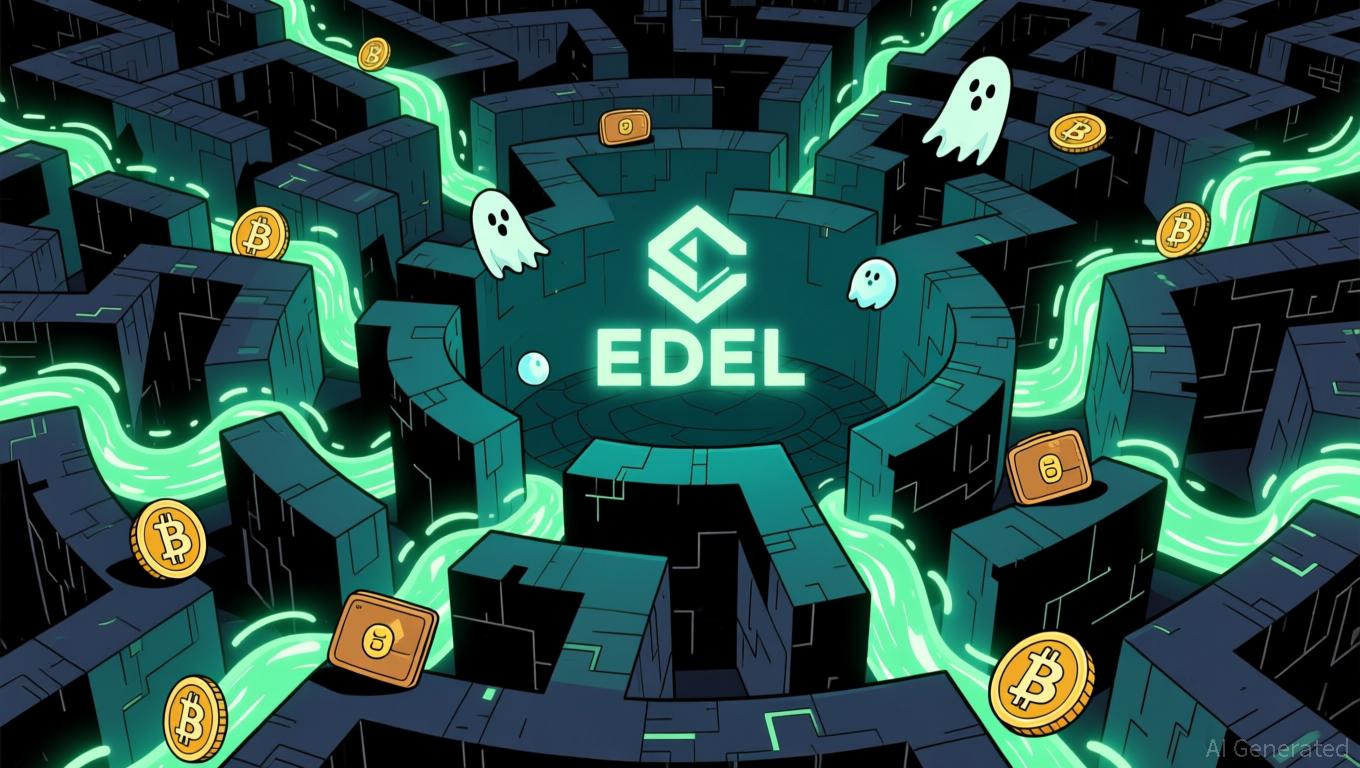Blockchain analytics company
Bubblemaps
has alleged that Edel Finance engaged in sniping by acquiring 30% of its EDEL token supply at the November 12 launch. The protocol’s co-founder has denied these claims, asserting that the purchases were part of a prearranged token allocation plan. According to Bubblemaps, a network of 160 interconnected wallets made the acquisitions using coordinated funds from platforms such as Binance and MEXC,
amassing $11 million in tokens
through what they describe as automated, bot-driven sniping tactics. The firm also asserts that the tokens were hidden via complex wallet layering and liquidity maneuvers, forming a “maze” to obscure the transactions
based on their analysis
.
James Sherborne, co-founder of Edel Finance, rejected the accusations, explaining that the team secured 60% of the token supply, which was then locked in vesting contracts as publicly documented. He dismissed Bubblemaps’ findings as a “Hayden Davis defense”,
alluding to the disputed memecoin founder
who was criticized for not disclosing insider allocations. Despite these rebuttals,
Bubblemaps pointed out contradictions
, highlighting that the token contract was directly linked to secondary wallets involved in the sniping, implying deliberate concealment.
This dispute has coincided with a significant drop in EDEL’s market value.
The token’s market capitalization has fallen by 62%
to $14.9 million in the last week, with the price at $0.02937. Analysts attribute the decline to shaken confidence and increased regulatory attention, as the situation fuels ongoing discussions about transparency in tokenomics and DeFi initiatives. Edel Finance, which seeks to connect traditional equities with blockchain-based lending,
is under mounting scrutiny
to resolve governance issues amid a broader downturn in the crypto sector.
This episode highlights the escalating friction between blockchain analytics groups and DeFi protocols.
Bubblemaps’ public thread outlined
the mechanics of the sniping activity, describing the use of
Uniswap
liquidity NFTs to further
obscure
token flows. At the same time, recent SEC policy changes—permitting certain decentralized infrastructure (DePIN) projects to distribute tokens without registration—have drawn criticism from established exchanges like Nasdaq and Deutsche Boerse,
who warn that such policies may threaten
market stability.
As the situation develops, Edel Finance’s experience could shape how both regulators and investors evaluate token distribution protocols. While the project’s defense relies on prior disclosures, critics maintain that even “planned” allocations must be communicated transparently to prevent perceptions of favoritism
according to industry specialists
. For now, the EDEL token remains central to the ongoing debate over accountability in the evolving crypto landscape.
